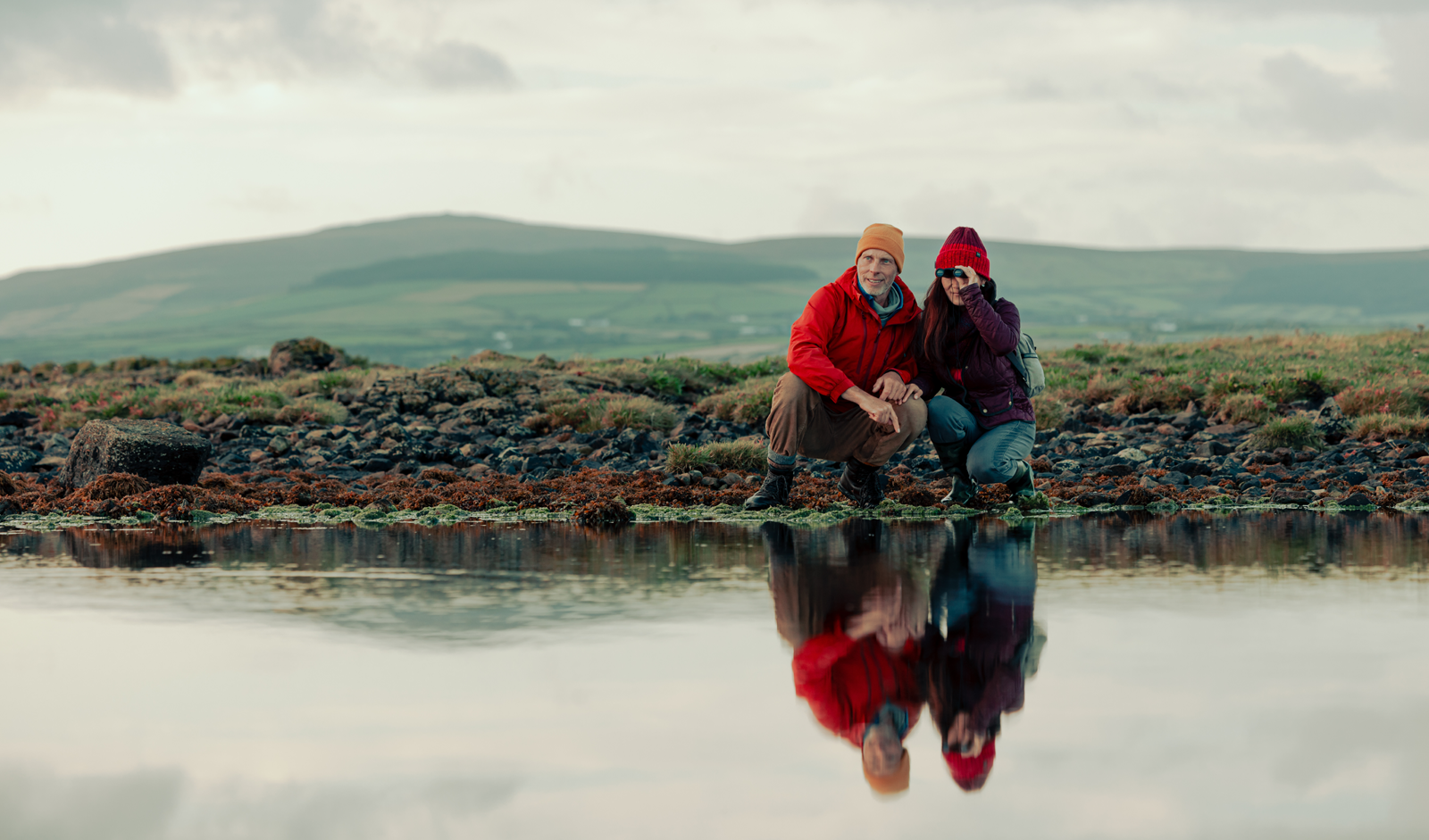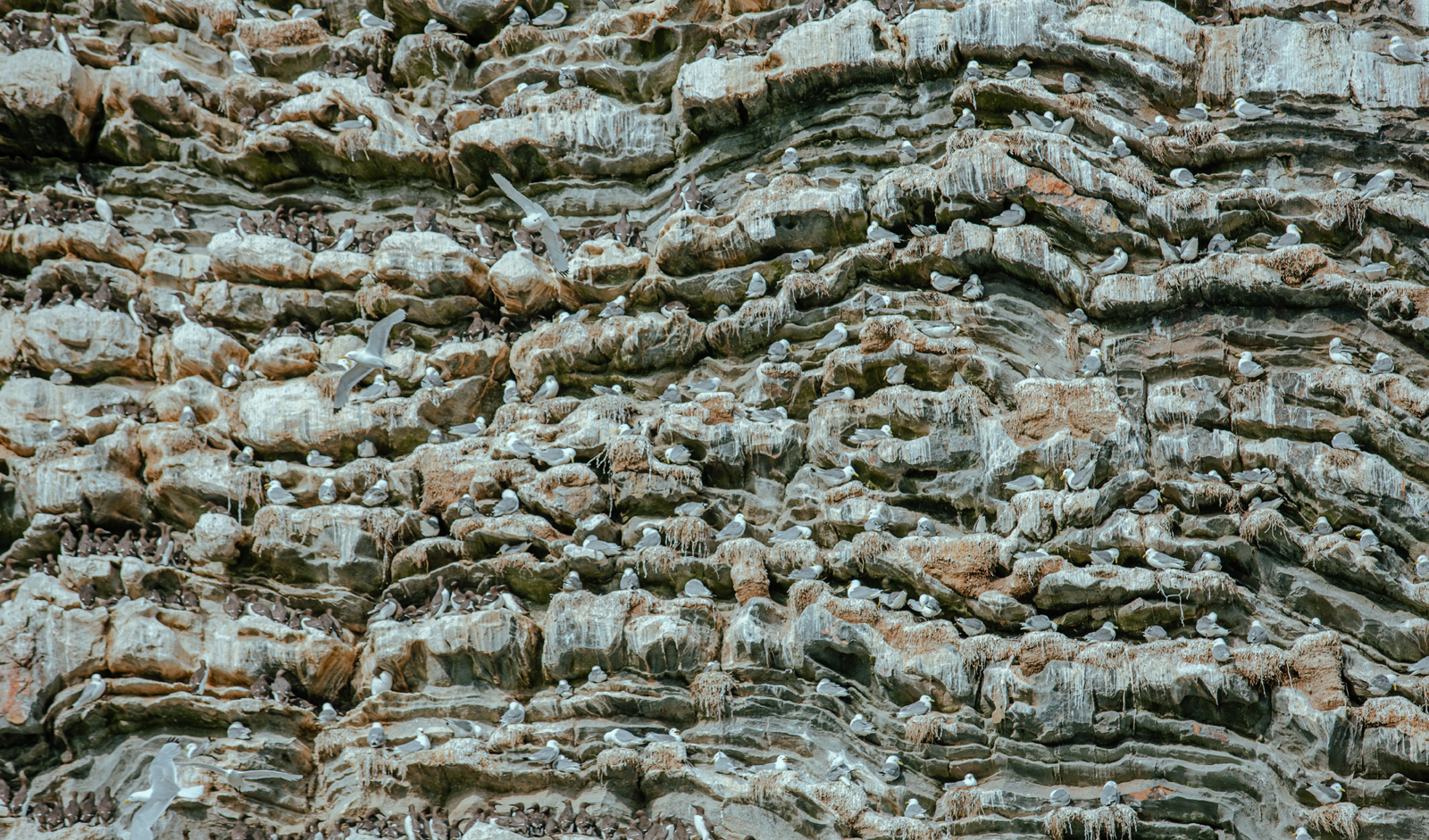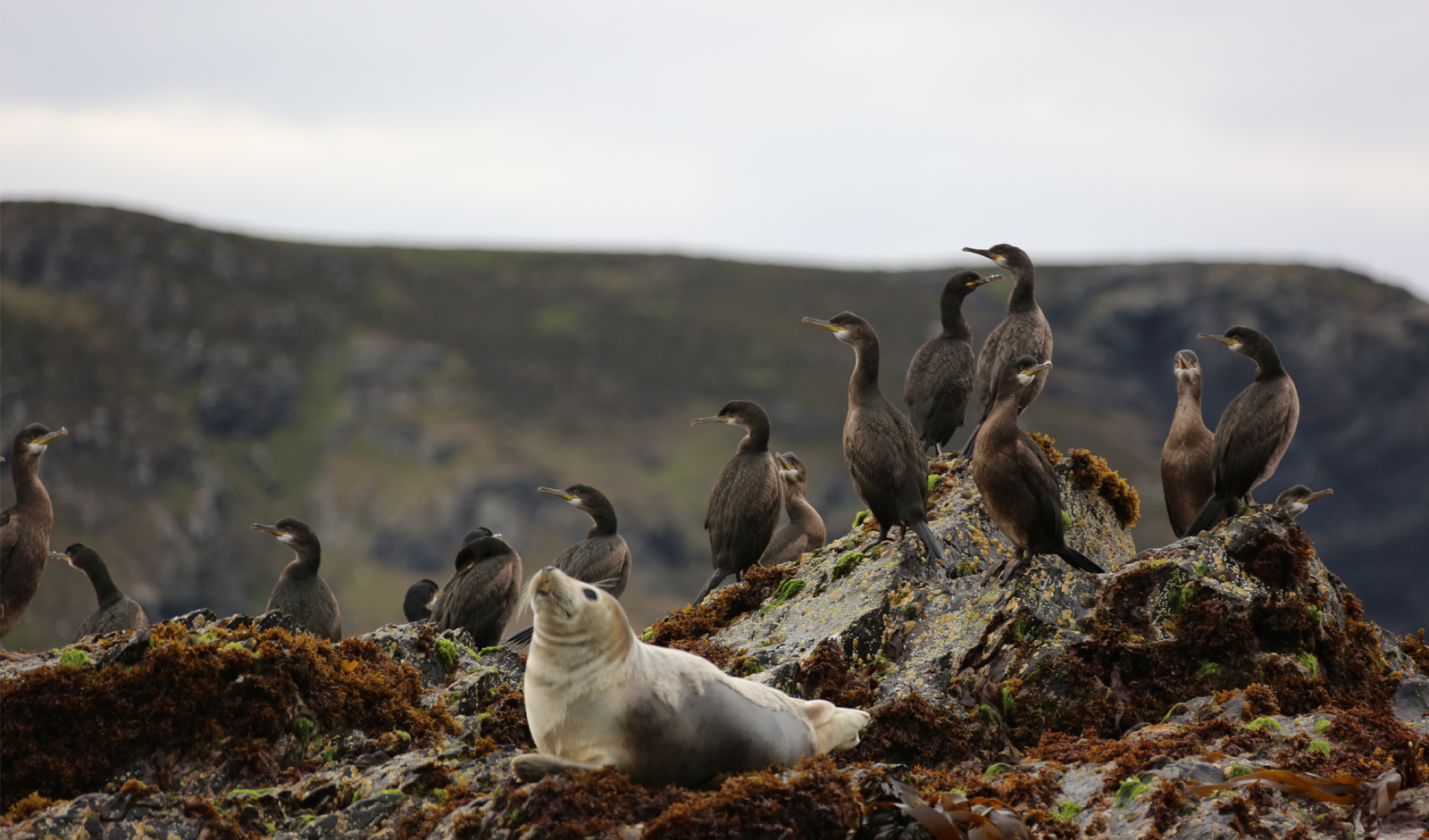Contrary to popular belief, winter is anything but quiet for Manx wildlife! Manx Wildlife Trust’s David Bellamy has put together a guide to winter wildlife on the Island to help you discover wild beauty this cold season.
On Land
On land we witness a massive influx of birds from the northern parts of the globe, which come here to enjoy our mild, snow-free winters with longer day lengths. Thousands of ducks, geese and waders flock from Canada, Greenland, Iceland, Scandinavia and Russia. Top sites to see them include Derbyhaven Bay, the Saltmarsh at Langness, the beaches of the Ayres from Jurby to Bride, and Manx BirdLife’s incredible new Point of Ayre National Reserve in Bride which is open every Wednesday and Sunday and is free to enter.

On farmland, our hedgerows will be full of Scandinavian thrushes such as Redwing and Fieldfare which travel here to eat the berries of Holly, Hawthorn, Ivy and Mountain Ash. Wet fields also support Snipe, Jack Snipe and Woodcock from far afield. You may be lucky enough to see a Starling murmuration (there is an evening roost under the Sea Terminal Linkspan).
Keep an eye out for the rare Short-eared Owl hunting in the day – but ensure you do not disturb them as they are near starvation at this time of year. In winter, the Hen Harriers which breed up on the Manx hills descend to follow their prey to coastal areas and lowland farmland, and on our winter stubble fields good numbers of Skylark and the rare Stock Dove and Tree Sparrow can be found.

At Sea
At sea, our Grey Seals have just finished pupping. In 2024 there were a record 98 pups born on the Calf of Man! Seals can be seen all year round at the Point of Ayre and the Sound. In winter, the Island is graced by a large pod of Bottlenose Dolphin from Cardigan Bay in Wales. They can be seen anyway on a calm day, with the east coast being a hotspot, where they are usually seen swimming south close to shore. Laxey Bay and Marine Drive are great vantage points.

To find out more information about wildlife on the Isle of Man, check out Manx Wildlife Trust’s website.






Comments
Comments are disabled for this post.